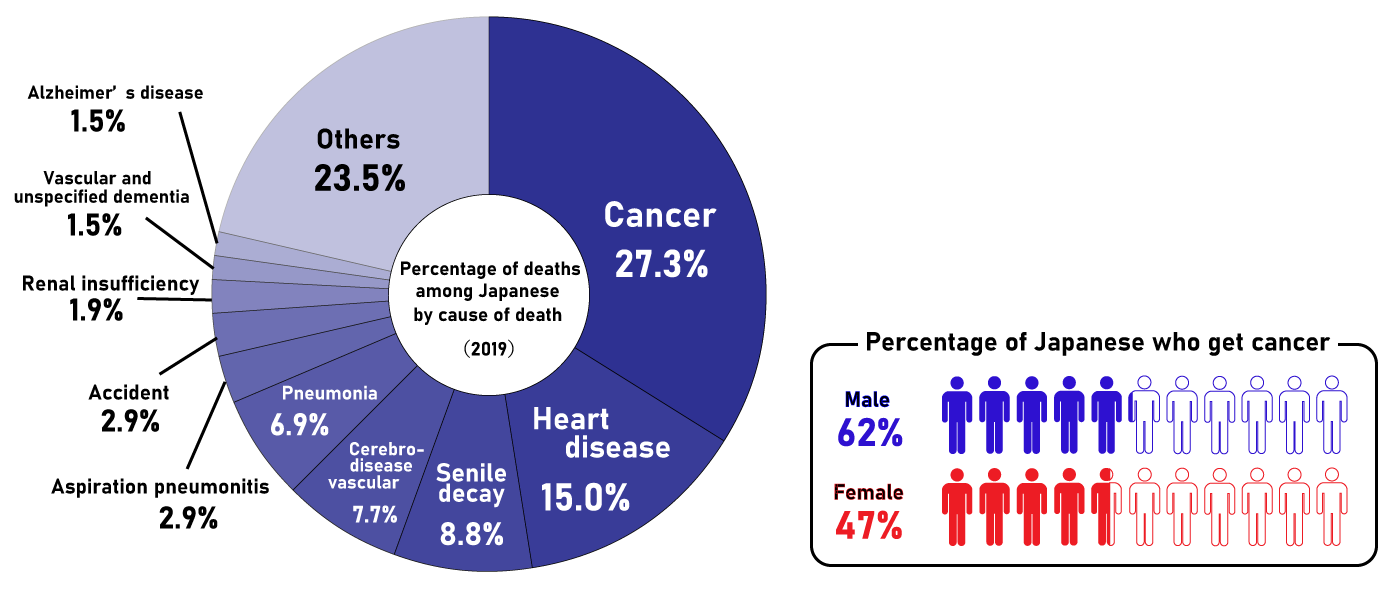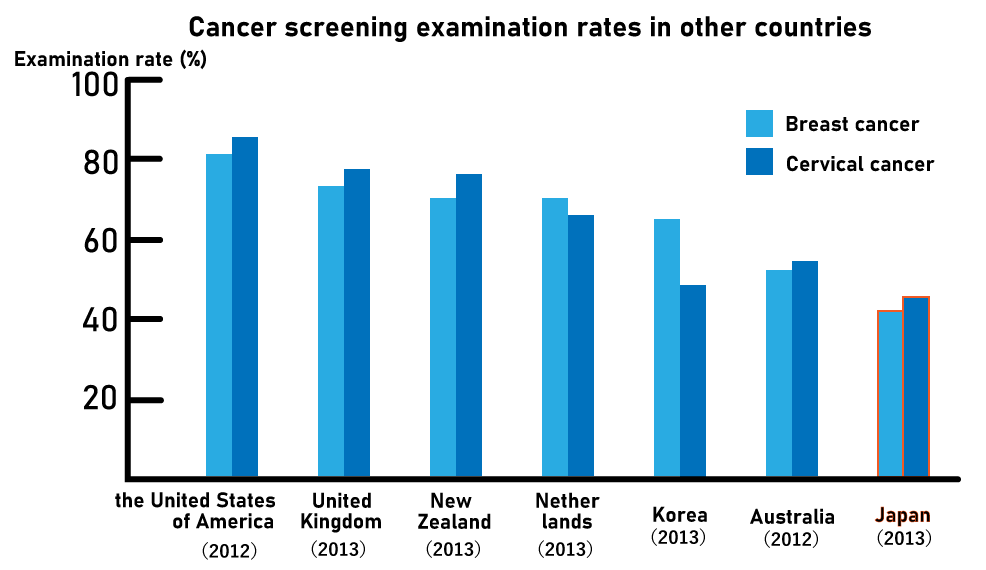


Finding Cancer with Nematode
Cancer is the number one cause of death in Japan. About 376,000 people in Japan died of cancer in 2019. It is also reported that about one in two Japanese, both men and women, will be developed cancer in their lifetime.

Although early detection and treatment for cancer is expected to improve the cure rate, many people do not undergo cancer screening due to reasons such as "lack of time" or "the cost of testing is a financial burden". In fact, the cancer screening uptake rate in Japan is low compared to other developed countries. Under such situations, the cancer screening method using nematodes has been attracting attention.

The Testing Method
It is known that cancer patients have a characteristic smell that healthy people do not have, and the cancer screening using nematodes uses the chemotaxis of C. elegans, a species of nematode. Under certain conditions, C. elegans is able to distinguish between different odors, moving away from the urine of healthy people and closer to the urine of cancer patients. The nematode has 1,200 types of olfactory receptors, three times as many as humans and 1.5 times as many as dogs, and is able to distinguish even the faintest odors that cannot be detected by machines. Also, they do not lose concentration and lose accuracy like dogs do.

Advantages of This Test
High Precision, Systemic Coverage, and Early Detection
This test can detect 15 types of cancer: stomach cancer, colorectal cancer, lung cancer, breast cancer, uterine cancer, pancreatic cancer, liver cancer, prostate cancer, esophageal cancer, ovarian cancer, bile duct cancer, gall-bladder cancer, kidney cancer, and oral/pharyngeal cancer, although the type of cancer cannot be identified at this stage of development. It has also been confirmed that it can detect all stages of cancer, from stage 0 to stage 4. It has a detection sensitivity of 86.3% for diagnosing cancer patients as having cancer, and a detection specificity of 90.8% for diagnosing people who do not have cancer as not having cancer.
Tumor markers, one of the existing cancer testing methods, have a detection sensitivity of about 10% in the very early stage and 30% to 50% in the late stage, which means that they are highly sensitive compared to existing cancer testing methods. Also, existing cancer testing methods such as diagnostic imaging are said to be more accurate when the tumor is in advanced stages or when the tumor is large, therefore, the fact that highly accurate testing can be performed regardless of the stage of cancer is also advantageous compared to existing cancer testing methods.
Easy and Painless
This test requires only a small amount of urine and is much easier and less physically demanding than existing testing methods such as X-rays, mammography, and gastroscopy, which are used in health checkups. This makes it easier for people to undergo regular checkups.
Low Price
The nematode used in these testing, C. elegans, is hermaphroditic and becomes an adult worm in about four days. They lay about 100 to 400 eggs in their lifetime and reproduce using E. coli, making them inexpensive to raise. Also, the testing method is simple, as stated above. For these reasons, the company that is developing and commercializing this cancer test charges 9,800 yen for the test, excluding tax and at a reference price (not covered by health insurance).
In this way, technologies are being developed and put to practical use that will make it possible to undergo easy, inexpensive, and highly accurate cancer tests by utilizing C. elegans. We believe that organisms, including "bugs", will have more and more opportunities to play a role in the medical field in the future.
This site is participating in the 23nd Japan Junior high school/high school Web contest(第23回全国中学高校Webコンテスト).
